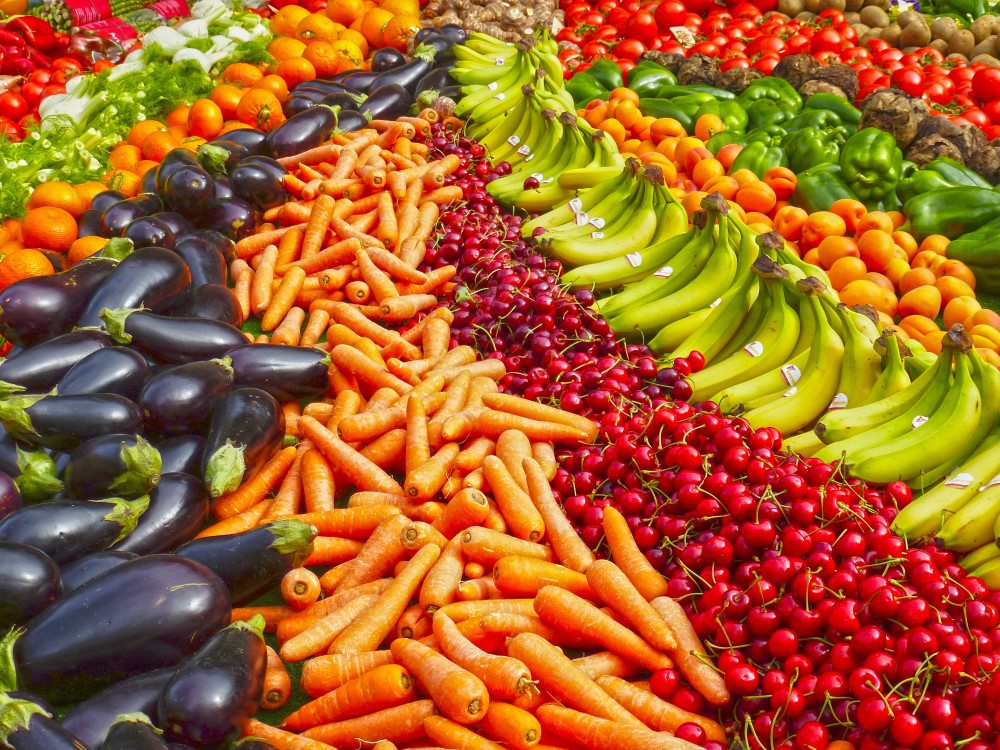12 Dirtiest (Plus Cleanest) Vegetables & Fruits

We have been told since we were children to eat our vegetables and we should. However, did you know that not every vegetable is the same? Vegetables like meat can have unique qualities and some vegetables are cleaner than others. A U.S. Department of Agriculture test of fruits and vegetables most contaminated by pesticides found 225 different pesticides on produce Americans eat every day.
The USDA went on to report that more than 92 percent of kale had two or more pesticide residues detected, with a single sample sometimes containing up to 18 different residues. So before you hit the grocery store, see how some of your favorite fruits and veggies measured up.
Here is a list of a few in the top “Dirty Dozen” of 2019 in order of contamination:
- Strawberries
- Spinach
- Kale
- Nectarines
- Apples
- Grapes
- Peaches
- Cherries
- Pears
- Tomatoes
- Celery
- Potatoes
Why are some types of produce more prone to sucking up pesticides than others? Richard Wiles, senior vice president of policy for the Environmental Working Group says, “If you eat something like a pineapple or sweet corn, they have a protection defense because of the outer layer of skin. Not the same for strawberries and berries.”
This list should in no way deter you from eating fruits and vegetables, but it should make you wary of modern chemical farming. Using chemicals to fumigate the soil and kill weeds, microbes and bugs have some unwanted side effects, including killing soil health and beneficial microbes.
We do have some good news! There are many delicious fruits and vegetables the U.S Department of Agriculture found that have few if any, pesticides.
Here is a list of a few in the top “Clean 12” for 2019:
- Avocados
- Sweet corn
- Pineapples
- Frozen sweet peas
- Onions
- Papayas
- Eggplants
- Asparagus
- Kiwis
- Cabbages
- Cauliflower
- Cantaloupes
According to the Environmental Working Group, people should focus on eating produce with the fewest pesticide residues. How can I do that you may ask?
By eating organic. The term “organic” refers to the way agricultural products are grown and processed. While the regulations vary from country to country, in the U.S., organic crops must be grown without the use of synthetic pesticides, bioengineered genes (GMOs), petroleum-based fertilizers, and sewage sludge-based fertilizers.
Organic livestock raised for meat, eggs, and dairy products must have access to the outdoors and be given organic feed. They may not be given antibiotics, growth hormones, or any animal by-products.
Benefits of Organic Foods
- Organic produce contains fewer pesticides.
- Organic food is often fresher
- Organic farming is better for the environment.
- Organically raised animals are NOT given antibiotics, growth hormones, or fed animal byproducts.
- Organic meat and milk are richer in certain nutrients.
- Organic food is GMO-free.
If you are wondering how to ensure your vegetables are clean consider going organic or maybe growing your own.
____________________________________________________________________
References
Organic Foods: What You Need to Know
https://www.helpguide.org/articles/healthy-eating/organic-foods.htm
Horgan, K. (2020, May 13). The clean 15 & dirty dozen lost of foods. Giving Assistant. Retrieved from
https://blog.givingassistant.org/dirty-dozen-clean-15-list/
Jorgenson, D. (2019, March 21). List of dirtiest, cleanest fruits, vegetables just might surprise you. Retrieved
The 2019. (2019, March 20). The 2019 pesticide ‘dirty dozen’ fruits and vegetables. CNN Health. Retrieved
from https://www.cnn.com/2019/03/20/health/gallery/2019-dirty-dozen-fruits-and-vegetables/index.html
Recommended Posts

Respecting The Holy Spirit
03/25/2021

Responding to the Holy Spirit
03/23/2021

Recognizing the Work of the Holy Spirit
03/15/2021
